A sad day for preservation and emulation, as SEGA has announced that they will be delisting the classic Sonic games.
Why? Well, they have Sonic Origins coming out on June 23. So they will be delisting Sonic the Hedgehog 1, 2, Sonic 3 & Knuckles and Sonic CD on May 20. If that alarms you, then you might want to grab them from the SEGA Mega Drive and Genesis Classics collection (you can buy them individually). That whole collection supports Linux too, and comes with roms, which it appears Sonic Origins will not (on both counts).
The full press release:
SEGA announced today that the company will delist the digital versions of the stand-alone titles that will be featured in the upcoming game, Sonic Origins on May 20, 2022.
This will include Sonic the Hedgehog 1, 2, Sonic 3 & Knuckles and Sonic CD. There are a couple of exceptions - Sonic the Hedgehog 1 and 2 will remain available via SEGA AGES on the Nintendo Switch and Sonic the Hedgehog 2 will still be playable via Sega Genesis on Nintendo Switch Online +.
Delisting means no new purchases but existing owners will continue to have access.
It doesn't help that Sonic Origins has a stupid confusing DLC policy mess, just look at this. What have they done to Sonic?
Publisher Devolver Digital were quick to make a good joke about it.
Currently waiting on a little more info from SEGA PR, will update if / when they reply.
There was a lot of talk about this when Disney started to (significantly) ramp-up all the 'Mickey' merchandise a few years back... I never realized that a company still operating could lose ownership of their intellectual property, but apparently they can after a set period of time and a certain set of circumstances.There is this closeness, yet seperation between Copyright, Patents, Trademarks and Intellectual Property.
Not too sure how I feel about that, but there you go.
I of course could be wrong, but the way I understand it, copyright ends 70(?) Years after the author dies, unless the holder of their estate keeps reapplying... which is why you can't just sing Happy Birthday in a restaurant. Patents... I don't think ever expire, they just either get randomly enforced... or not. Trademarks is why Disney has to keep the merchandise and the name Mickey out there. IP I think are like Pokémon cards, corporations want to collect them all.
Patents actually expire a lot faster. Like 20 years or so, in theory. Large companies have various tricks where they add bits and say it's a new patent sort of, so they can functionally keep a patent going for longer. In the US at least.There was a lot of talk about this when Disney started to (significantly) ramp-up all the 'Mickey' merchandise a few years back... I never realized that a company still operating could lose ownership of their intellectual property, but apparently they can after a set period of time and a certain set of circumstances.There is this closeness, yet seperation between Copyright, Patents, Trademarks and Intellectual Property.
Not too sure how I feel about that, but there you go.
I of course could be wrong, but the way I understand it, copyright ends 70(?) Years after the author dies, unless the holder of their estate keeps reapplying... which is why you can't just sing Happy Birthday in a restaurant. Patents... I don't think ever expire, they just either get randomly enforced... or not. Trademarks is why Disney has to keep the merchandise and the name Mickey out there. IP I think are like Pokémon cards, corporations want to collect them all.
Trademarks have that particular thing where I'm not sure if they ever expire out of sheer duration, but they have to be actively maintained. You have to keep on using the trademark, and you have to get on people's case if they try to use it. If the courts conclude you haven't given a damn about the trademark for too long, you lose it.
Copyrights just last a really long time. They don't depend on usage or enforcement as far as I've ever heard, although they can require the occasional re-application. But last time it was looking like Mickey Mouse was going to hit the end of the copyright period, Disney bought themselves a law making US copyright last a lot longer, and luckily for them that was just as we were hitting the age of all the big companies deciding "intellectual property" was where it's at so they started getting incredibly long copyright periods written into all the trade agreements. But the Sonny Bono (/Disney) copyright act was quite a few years ago now, it may well be they're staring the end in the face, or need another new law, or at least need to do some kind of special re-applying thing. However, I think the basic mouse-ears image thing isn't copyrightable--too brief and minimal, that would be purely a trademark.
Really, it's been ages since they did much of anything with Mickey Mouse as, like, a character in a narrative, using the actual copyright. Not really something that would work for modern audiences, frankly.
Anybody else having problems running the Sega Mega Drive and Genesis Classics collection?
I'm trying to run it and after seeing the Sega logo briefly, it consistently causes my entire system to freeze...
The issue relates to multiple displays... If I disconnect my external display and disable one of my laptop's displays (my laptop has two built-in displays), the game runs perfectly, without issue.
I can reproduce this consistently, and I have submitted a bug notification to SEGA via both 'Steam' and their (SEGA's) 'support' website... If anybody else is running multiple displays with this game, I encourage you to [make a comment in the 'Steam' thread](https://steamcommunity.com/app/34270/discussions/0/3278067618872658197/) and / or by [submitting a bug notification to SEGA](https://support.sega.com/hc/en-us) also.
It looks like the developers have been semi-active in addressing bugs mentioned on the 'Steam' forums over the years, so if enough people bring this to their attention, who knows, maybe they'll take the time to address this bug also?
I remember as a kid Sonic on the MD/Genesis looked just awesome.Try the Game Gear Sonic titles, instead (Sonic The Hedgehog, Sonic The Hedgehog 2, Sonic Chaos, Sonic Triple Trouble, and the cute-and-cuddly miniature Metroidvania, Tails Adventures, are the ones that are worth a look; Sonic Blast, Sonic Labyrinth, and Tails' Sky Patrol aren't so great). If the size of the Game Gear viewport doesn't suit, there are also Master System versions of the first three, which feature some slightly different bosses, and occasionally also slightly different visuals, music, and level-names.
The whole cool aesthetics and clever use of the available colour palette, the level design and the fast gameplay.
Yet, when I first played it, it was basically no fun (for me).
I can't even tell why, but the Mario games were always the by far better platformers for me judging by the gameplay.
Though the 8-bit Sega consoles were really popular in countries like the UK and Brazil, their Sonics are usually inexplicably left out of these sorts of "Origins" collections in spite of being just as much a part of the series' origins as the much-vaunted 16-bit titles are. It's weird - it's like only some regions' gaming history is being preserved, now.
The 8-bit Sonic games have more layers to their gameplay, like exploring the normal stages (as opposed to being warped to a special stage) to find the hidden Chaos Emeralds (necessary pick-ups for the true ending in most of the games), more interesting uses of pipes (some games allow you to traverse short mazes and others use them during boss-fights; They're just one-way automatic features in the 16-bit games), and one-off curiousities like navigating a narrow underwater maze filled with sharp things whilst stuck in a large bubble and exclusive items like rocket-boots and mobile pogo-springs, and the bosses were similarly unusual and imaginative too - all stuff that the 16-bit titles never touched. The only 16-bit installment that came close to this was Sonic CD (a game which cleverly acknowledges that the world isn't built around the unique abilities of the protagonist, and which therefore expects players to carefully moderate their use of them until they discover the correct place to leverage them to jump through time and destroy evil items in the past to prevent a bad future), which, probably not coincidentally, was referenced ahead of its release via a stage theme in the 8-bit Sonic 2 being an instrumental version of the vocal theme-song from the Japanese and PAL versions of Sonic CD.
I'm not saying that the 16-bit titles are bad, by any means - just that the 8-bit versions employed more creativity to make up for having less flashy hardware at their disposal. They're quite interesting (and remain my preference of the two even after all these decades) - if you like 2D platformers, check them out!
Trademarks have that particular thing where I'm not sure if they ever expire out of sheer duration, but they have to be actively maintained. You have to keep on using the trademark, and you have to get on people's case if they try to use it. If the courts conclude you haven't given a damn about the trademark for too long, you lose it.Interestingly enough, according to the [USPTO TESS](https://www.uspto.gov/trademarks/search), Sega abandoned the original "Sonic The Hedgehog" trademark in 1993, at the height of the series' success (this came prior to multiple efforts in the mid-to-late 1990s to replace Sonic with the likes of Ristar and NiGHTS, which is presumably related).

I guess that this is why they instead market it as "Sonic the Hedgehog" nowadays, without the capital "T".
Kind of seems to me the only 8bit Sega game that gets a lot of respect is the first Phantasy Star. But there were so many great games on the system. Also Ultima IV on it is arguably the best looking / greatest version of the game.I remember as a kid Sonic on the MD/Genesis looked just awesome.Try the Game Gear Sonic titles, instead (Sonic The Hedgehog, Sonic The Hedgehog 2, Sonic Chaos, Sonic Triple Trouble, and the cute-and-cuddly miniature Metroidvania, Tails Adventures, are the ones that are worth a look; Sonic Blast, Sonic Labyrinth, and Tails' Sky Patrol aren't so great). If the size of the Game Gear viewport doesn't suit, there are also Master System versions of the first three, which feature some slightly different bosses, and occasionally also slightly different visuals, music, and level-names.
The whole cool aesthetics and clever use of the available colour palette, the level design and the fast gameplay.
Yet, when I first played it, it was basically no fun (for me).
I can't even tell why, but the Mario games were always the by far better platformers for me judging by the gameplay.
Though the 8-bit Sega consoles were really popular in countries like the UK and Brazil, their Sonics are usually inexplicably left out of these sorts of "Origins" collections in spite of being just as much a part of the series' origins as the much-vaunted 16-bit titles are. It's weird - it's like only some regions' gaming history is being preserved, now.
The 8-bit Sonic games have more layers to their gameplay, like exploring the normal stages (as opposed to being warped to a special stage) to find the hidden Chaos Emeralds (necessary pick-ups for the true ending in most of the games), more interesting uses of pipes (some games allow you to traverse short mazes and others use them during boss-fights; They're just one-way automatic features in the 16-bit games), and one-off curiousities like navigating a narrow underwater maze filled with sharp things whilst stuck in a large bubble and exclusive items like rocket-boots and mobile pogo-springs, and the bosses were similarly unusual and imaginative too - all stuff that the 16-bit titles never touched. The only 16-bit installment that came close to this was Sonic CD (a game which cleverly acknowledges that the world isn't built around the unique abilities of the protagonist, and which therefore expects players to carefully moderate their use of them until they discover the correct place to leverage them to jump through time and destroy evil items in the past to prevent a bad future), which, probably not coincidentally, was referenced ahead of its release via a stage theme in the 8-bit Sonic 2 being an instrumental version of the vocal theme-song from the Japanese and PAL versions of Sonic CD.
I'm not saying that the 16-bit titles are bad, by any means - just that the 8-bit versions employed more creativity to make up for having less flashy hardware at their disposal. They're quite interesting (and remain my preference of the two even after all these decades) - if you like 2D platformers, check them out!
Trademarks have that particular thing where I'm not sure if they ever expire out of sheer duration, but they have to be actively maintained. You have to keep on using the trademark, and you have to get on people's case if they try to use it. If the courts conclude you haven't given a damn about the trademark for too long, you lose it.Interestingly enough, according to the [USPTO TESS](https://www.uspto.gov/trademarks/search), Sega abandoned the original "Sonic The Hedgehog" trademark in 1993, at the height of the series' success (this came prior to multiple efforts in the mid-to-late 1990s to replace Sonic with the likes of Ristar and NiGHTS, which is presumably related).

I guess that this is why they instead market it as "Sonic the Hedgehog" nowadays, without the capital "T".
Kind of seems to me the only 8bit Sega game that gets a lot of respect is the first Phantasy Star. But there were so many great games on the system. Also Ultima IV on it is arguably the best looking / greatest version of the game.Yeah, there was just so much good stuff for the 8-bit Sega systems, but because they never made an impact in the US we don't seem to hear very much about them anymore.
There were a lot of great Disney licensed games for the Game Gear and Master System during that era, too, all completely different from the Mega Drive installments even in cases where the names were shared (such as Castle of Illusion, which, incidentally, got more 8-bit sequels than 16-bit ones - great little series); As with the 8-bit Sonics, sometimes the Game Gear and Master System would differ on these between themselves, with different cutscenes and level-layouts and so on. Asterix (just plain Asterix, not any of the "Asterix and [Whatever]" sequels) was superb as well, but sadly almost forgotten nowadays. There were two completely different versions of Tom & Jerry: The Movie (if you liked one, then the other was almost like an expansion), which were based more on the cartoons than the film. Then there was Fantasy Zone Gear, which isn't really a port or conversion of the other titles in that series, but its own pocket-sized installment. And all of the arcade conversions like Pengo, Wonder Boy, and suchlike... I personally found all of these to be more solid than their 16-bit equivalents - they had some really good outside studios contracted to work on the 8-bit output. (I like platformers a lot, which no doubt shows here. There were a lot on offer that I spent many happy hours with.)
I could go on, but then we'd be here all day and all night!
Kind of seems to me the only 8bit Sega game that gets a lot of respect is the first Phantasy Star. But there were so many great games on the system. Also Ultima IV on it is arguably the best looking / greatest version of the game.Yeah, there was just so much good stuff for the 8-bit Sega systems, but because they never made an impact in the US we don't seem to hear very much about them anymore.
There were a lot of great Disney licensed games for the Game Gear and Master System during that era, too, all completely different from the Mega Drive installments even in cases where the names were shared (such as Castle of Illusion, which, incidentally, got more 8-bit sequels than 16-bit ones - great little series); As with the 8-bit Sonics, sometimes the Game Gear and Master System would differ on these between themselves, with different cutscenes and level-layouts and so on. Asterix (just plain Asterix, not any of the "Asterix and [Whatever]" sequels) was superb as well, but sadly almost forgotten nowadays. There were two completely different versions of Tom & Jerry: The Movie (if you liked one, then the other was almost like an expansion), which were based more on the cartoons than the film. Then there was Fantasy Zone Gear, which isn't really a port or conversion of the other titles in that series, but its own pocket-sized installment. And all of the arcade conversions like Pengo, Wonder Boy, and suchlike... I personally found all of these to be more solid than their 16-bit equivalents - they had some really good outside studios contracted to work on the 8-bit output. (I like platformers a lot, which no doubt shows here. There were a lot on offer that I spent many happy hours with.)
I could go on, but then we'd be here all day and all night!Time to fire up RetroPie on my GPD Win Max, I think!
It really was down the the shady practices of Nintendo. First they made any developers be exclusive with their whole "Nintendo Approved" licensing nonsense that'd fire off any anti-monopoly people's emotions! Second thing they did is convince retailers that they had to have a minimum of space for the NES or they wouldn't allow them to be sold there...
It really was down the the shady practices of Nintendo. First they made any developers be exclusive with their whole "Nintendo Approved" licensing nonsense that'd fire off any anti-monopoly people's emotions! Second thing they did is convince retailers that they had to have a minimum of space for the NES or they wouldn't allow them to be sold there...A far cry from the situation in the UK, which was like a bizarre inversion of that - Nintendo UK had a thoroughly hopeless distributor who had high prices and high minimum orders, and who wouldn't sell to certain stores, whereas Sega UK's distributor (which, if I'm remembering right, was born out of the old publisher Mastertronic) would sell to anyone and also priced their goods lower. This resulted in Nintendo being literally unknown throughout about half of the UK (which lasted until about the mid-to-late 1990s - they finally made inroads during the later days of the SNES, which remains my favourite home-console ever), and the market did the rest naturally.
Still, interesting times - the fierce competition that it led to in all countries resulted in some truly fantastic games, many of which still hold up today, and I can't quibble with that.
The most amusing story about consoles in my mind from 8bit era was that Nintendo had first approached Atari to sell the NES in the USA. But Atari farted around like they usually did, and instead decided to release the 7800 2 years too late with the sound being the same TIA chip that was in the 2600...It really was down the the shady practices of Nintendo. First they made any developers be exclusive with their whole "Nintendo Approved" licensing nonsense that'd fire off any anti-monopoly people's emotions! Second thing they did is convince retailers that they had to have a minimum of space for the NES or they wouldn't allow them to be sold there...A far cry from the situation in the UK, which was like a bizarre inversion of that - Nintendo UK had a thoroughly hopeless distributor who had high prices and high minimum orders, and who wouldn't sell to certain stores, whereas Sega UK's distributor (which, if I'm remembering right, was born out of the old publisher Mastertronic) would sell to anyone and also priced their goods lower. This resulted in Nintendo being literally unknown throughout about half of the UK (which lasted until about the mid-to-late 1990s - they finally made inroads during the later days of the SNES, which remains my favourite home-console ever), and the market did the rest naturally.
Still, interesting times - the fierce competition that it led to in all countries resulted in some truly fantastic games, many of which still hold up today, and I can't quibble with that.
But Atari farted around like they usually did, and instead decided to release the 7800 2 years too late with the sound being the same TIA chip that was in the 2600...Yeah! And the irony is, had it released on time, it probably would've done well for itself.
I don't know if you've seen the video retrospectives by video game historian Jeremy Parish about the Atari 7800, but if you haven't they're well worth watching. These should be all of them so far;
[Atari 7800 1986 (1 of 3): Pole Position II / Dig Dug / Ms. Pac-Man / Joust | NES Works Gaiden #12](https://www.youtube.com/watch?v=s8Vl5idPRVs)
[Atari 7800 1986 (2 of 3): Asteroids / Food Fight / Robotron 2084 / Galaga | NES Works Gaiden #13](https://www.youtube.com/watch?v=13sSJpGl7JE)
[Atari 7800 1986/87 (3 of 3): Xevious / Choplifter! / Karateka / One-on-One | NES Works Gaiden #14](https://www.youtube.com/watch?v=LHNMsyLgOiQ)
[Ballblazer & Winter Games retrospective: ’88 dawns for the 78 (hundred) | NES Works Gaiden #023](https://www.youtube.com/watch?v=OXwQ9TfW37g)
[Summer Games & Desert Falcon retrospective: Struggling for the bronze | NES Works Gaiden #024](https://www.youtube.com/watch?v=z3AL--umuiI)
But Atari farted around like they usually did, and instead decided to release the 7800 2 years too late with the sound being the same TIA chip that was in the 2600...Yeah! And the irony is, had it released on time, it probably would've done well for itself.
I don't know if you've seen the video retrospectives by video game historian Jeremy Parish about the Atari 7800, but if you haven't they're well worth watching. These should be all of them so far;
[Atari 7800 1986 (1 of 3): Pole Position II / Dig Dug / Ms. Pac-Man / Joust | NES Works Gaiden #12](https://www.youtube.com/watch?v=s8Vl5idPRVs)
[Atari 7800 1986 (2 of 3): Asteroids / Food Fight / Robotron 2084 / Galaga | NES Works Gaiden #13](https://www.youtube.com/watch?v=13sSJpGl7JE)
[Atari 7800 1986/87 (3 of 3): Xevious / Choplifter! / Karateka / One-on-One | NES Works Gaiden #14](https://www.youtube.com/watch?v=LHNMsyLgOiQ)
[Ballblazer & Winter Games retrospective: ’88 dawns for the 78 (hundred) | NES Works Gaiden #023](https://www.youtube.com/watch?v=OXwQ9TfW37g)
[Summer Games & Desert Falcon retrospective: Struggling for the bronze | NES Works Gaiden #024](https://www.youtube.com/watch?v=z3AL--umuiI)
Nice! I have not seen them. Sad fate of the 7800. There was an attempt to make the XM module for it, but sadly Curt Vendel that was working on it passed away suddenly.
Nice! I have not seen them. Sad fate of the 7800.I'm looking forward to when the videos get to stuff like Scrapyard Dog, because for a 1990 game it seemed like such an odd answer to the likes of Super Mario Bros., Wonder Boy, and so on. More on-topic, this one came out the year before the first Sonic game did, and it feels so incredibly far removed from that era that it's hard to believe! I'd love to see more about that point in the 7800's life.
There was an attempt to make the XM module for it, but sadly Curt Vendel that was working on it passed away suddenly.A very sad loss - he did a hell of a lot in the Atari sphere, and was one of the first video game historians and preservationists.
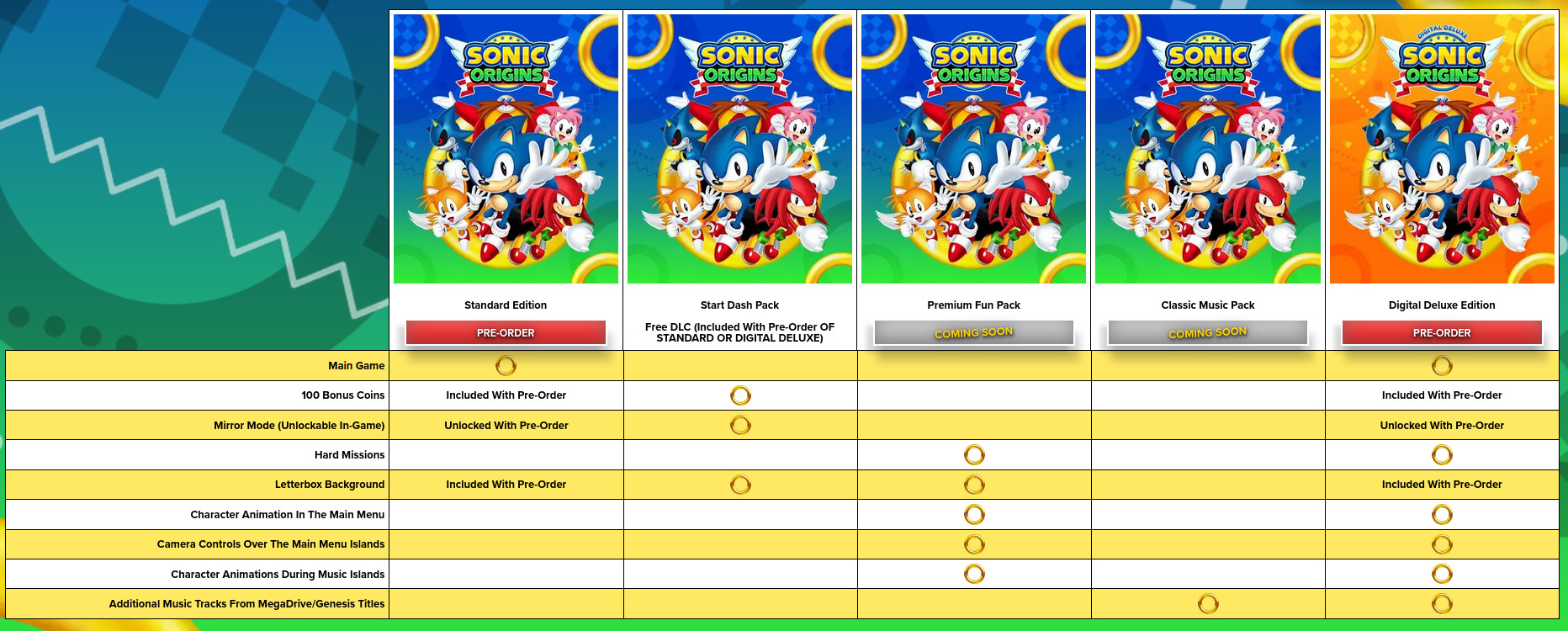
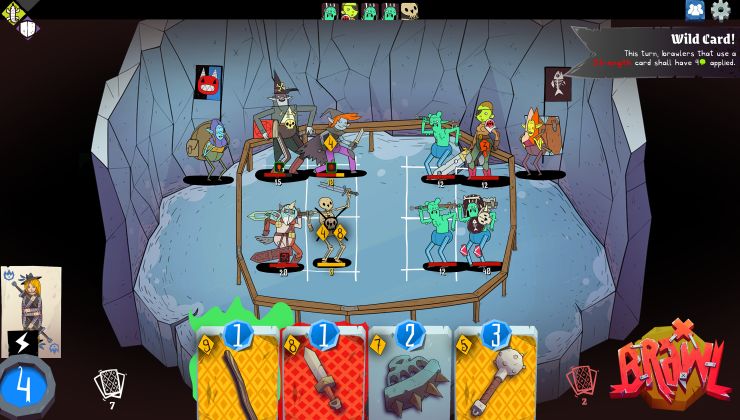
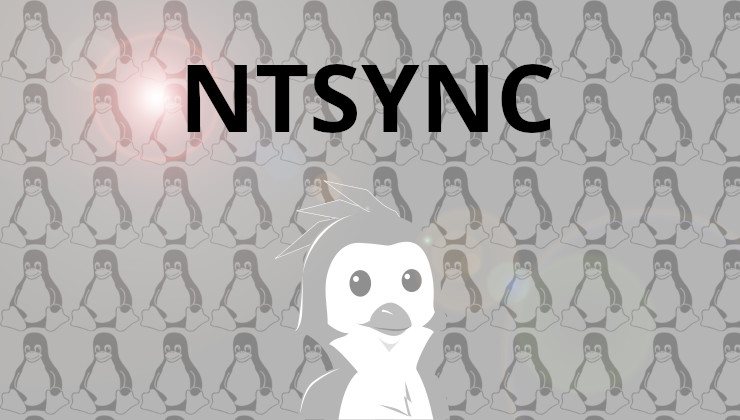
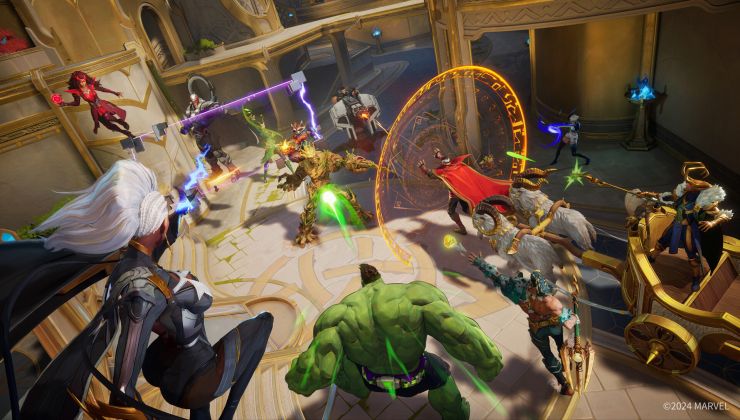
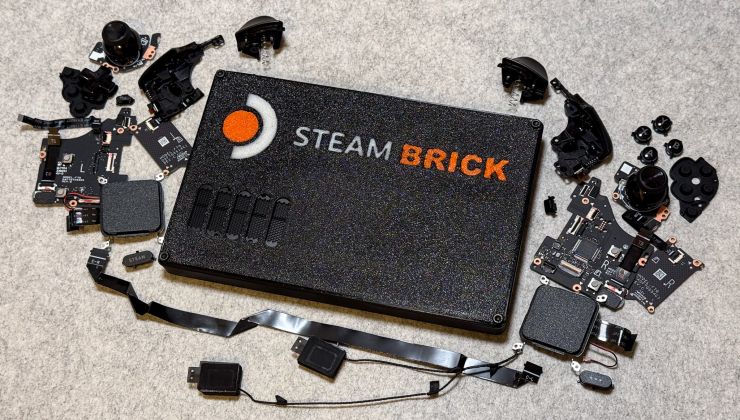


 How to set, change and reset your SteamOS / Steam Deck desktop sudo password
How to set, change and reset your SteamOS / Steam Deck desktop sudo password How to set up Decky Loader on Steam Deck / SteamOS for easy plugins
How to set up Decky Loader on Steam Deck / SteamOS for easy plugins
See more from me